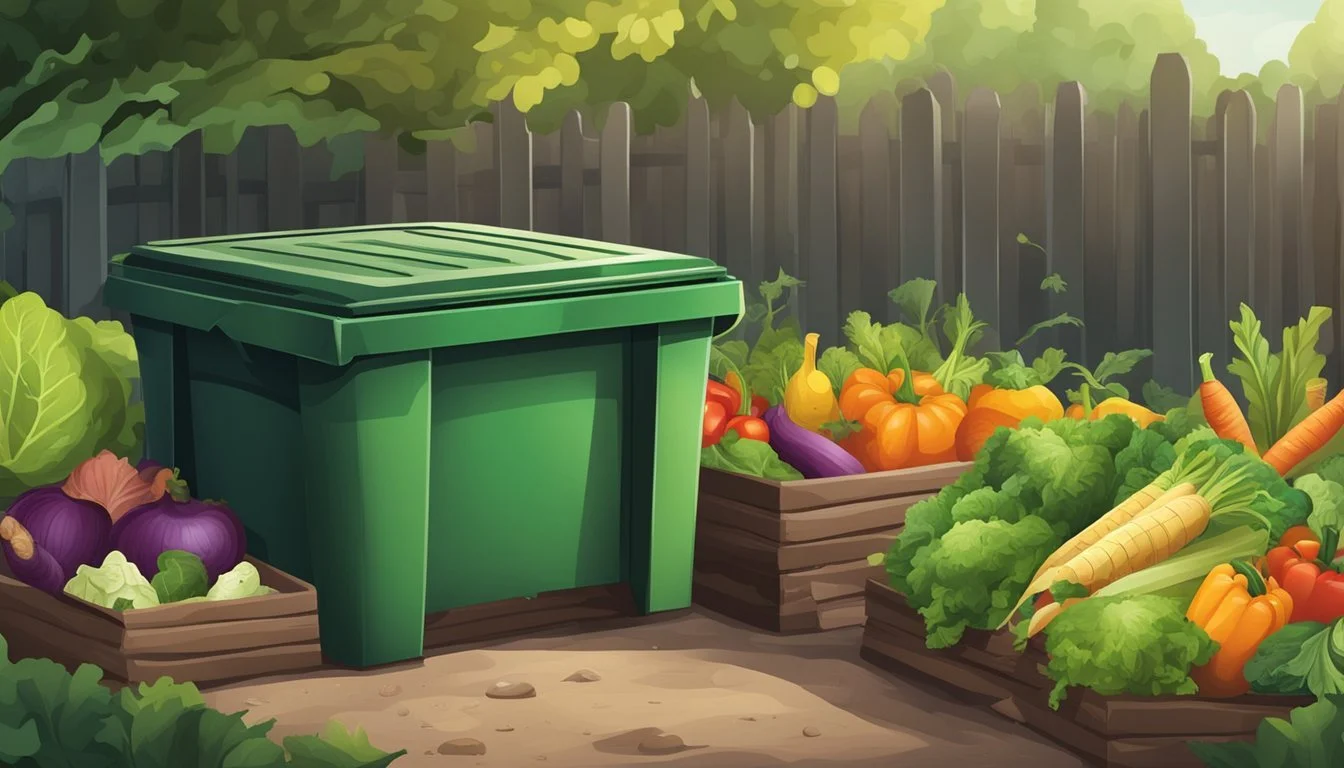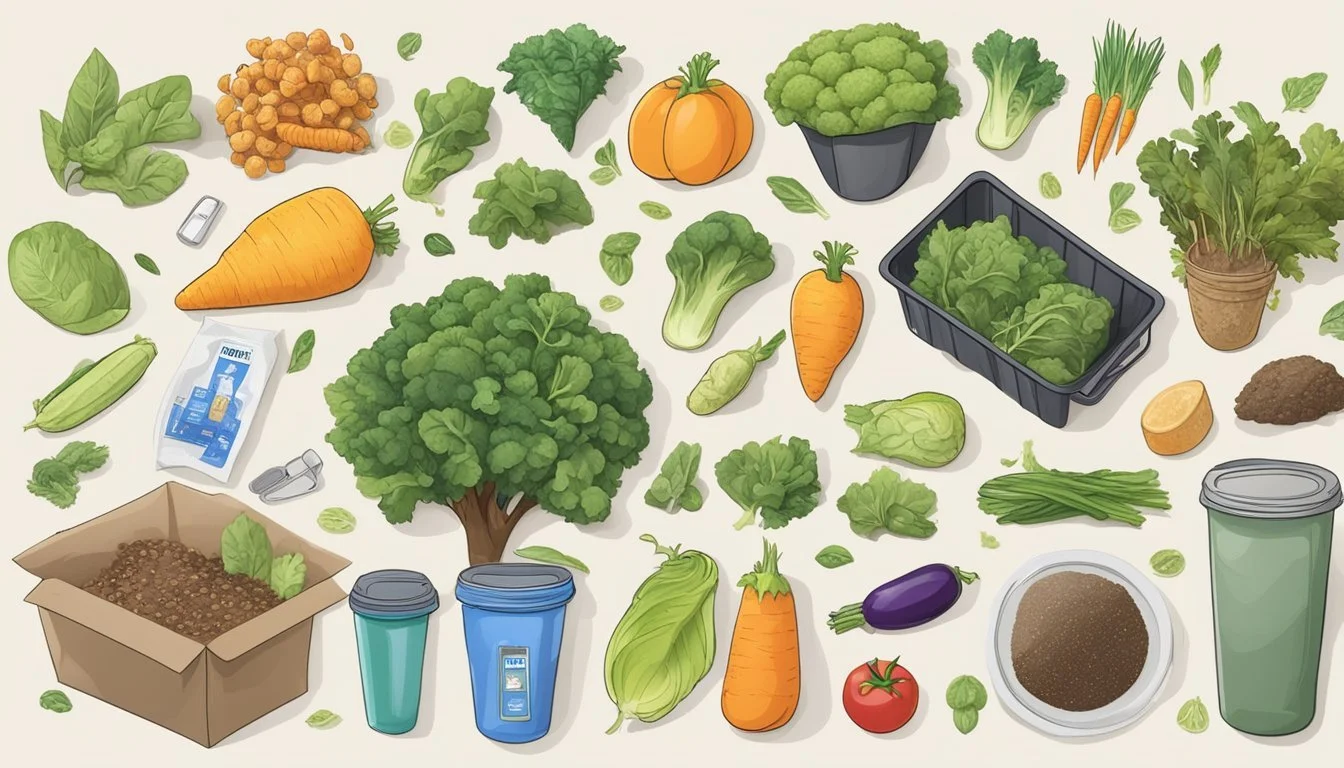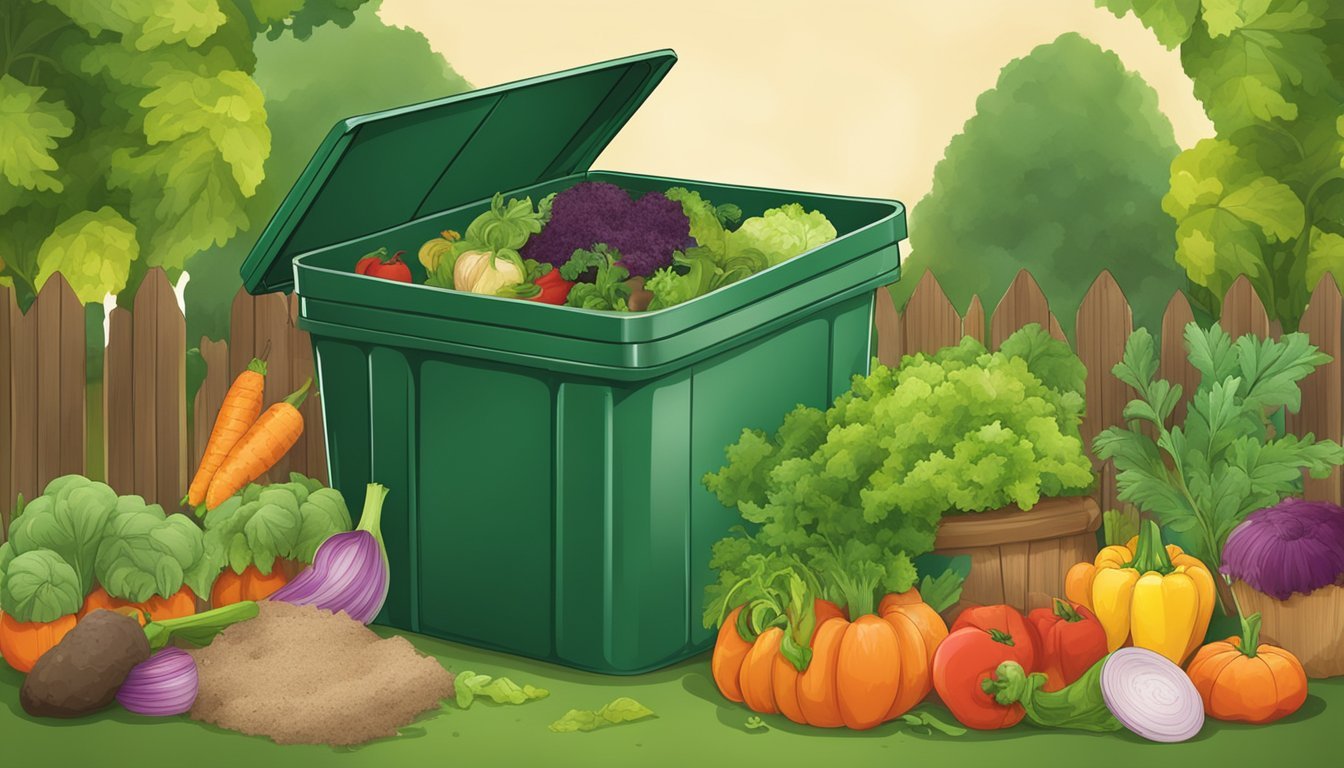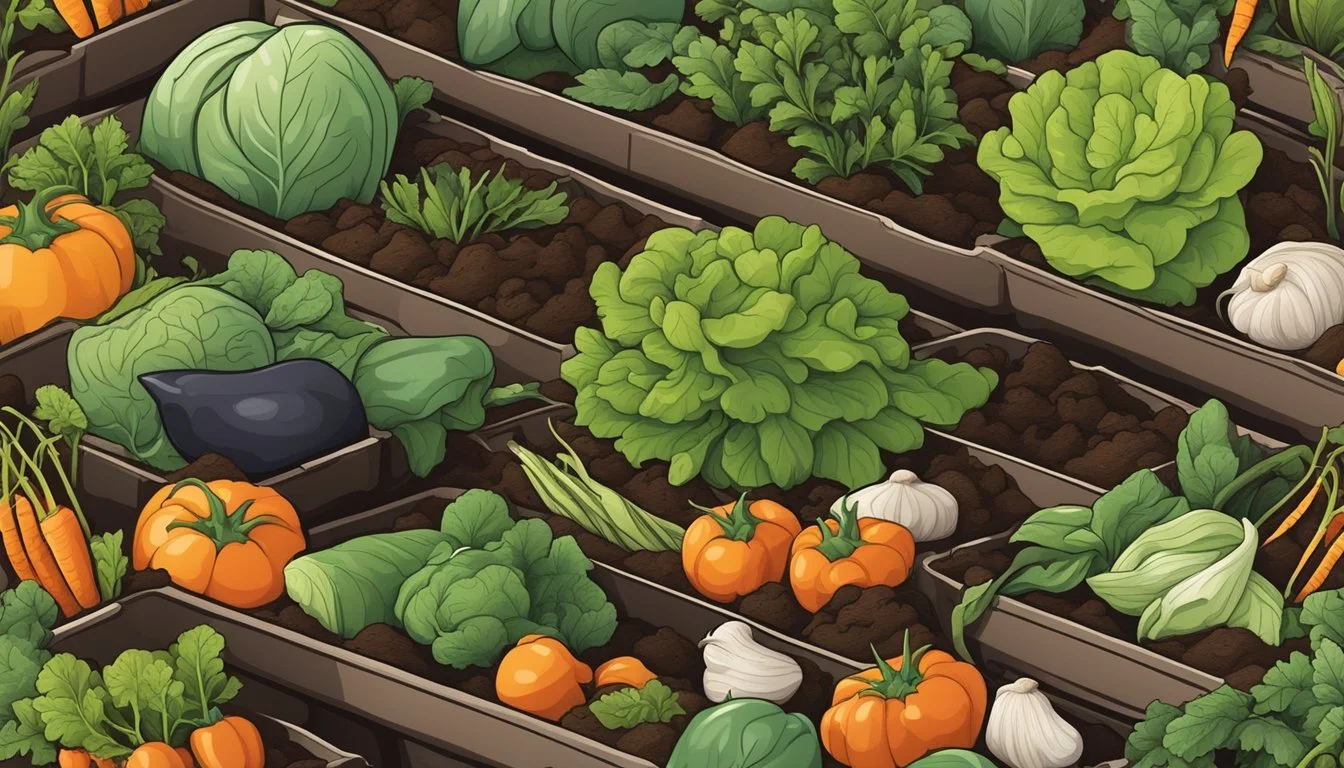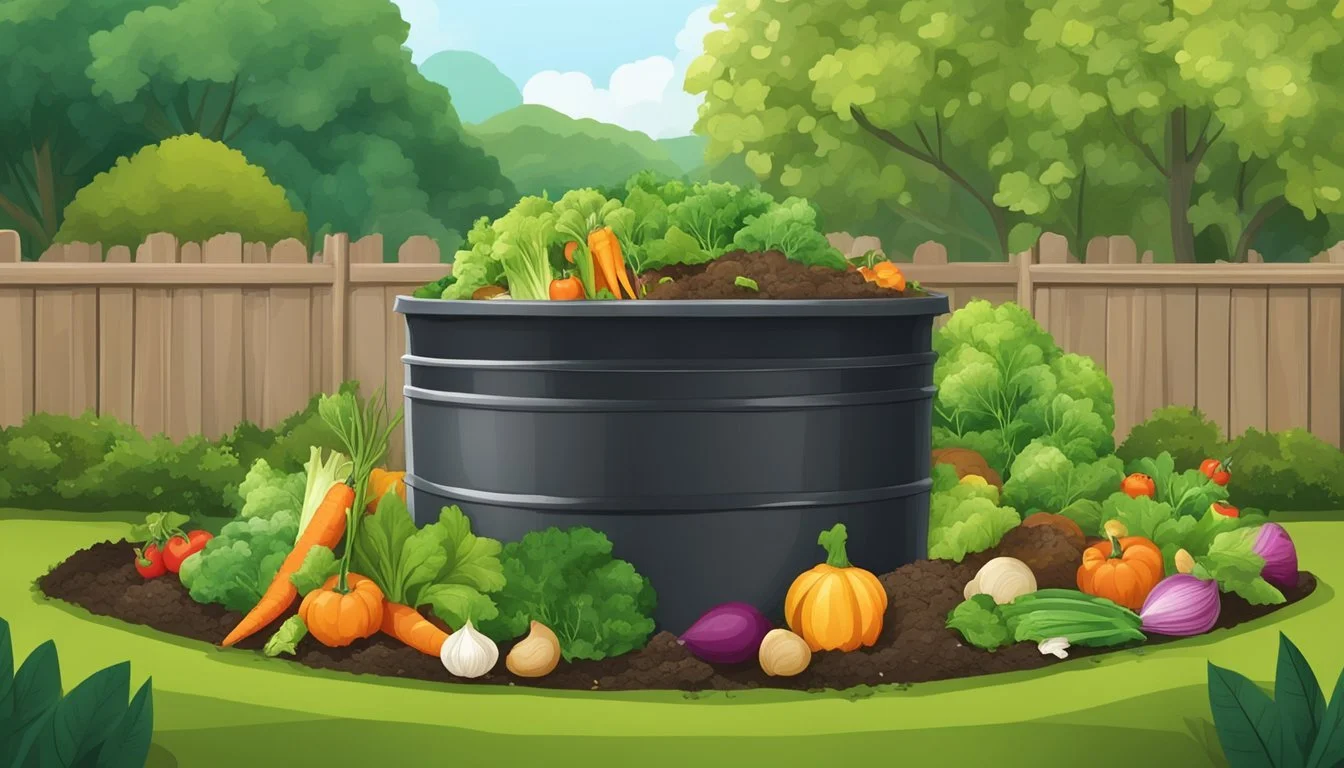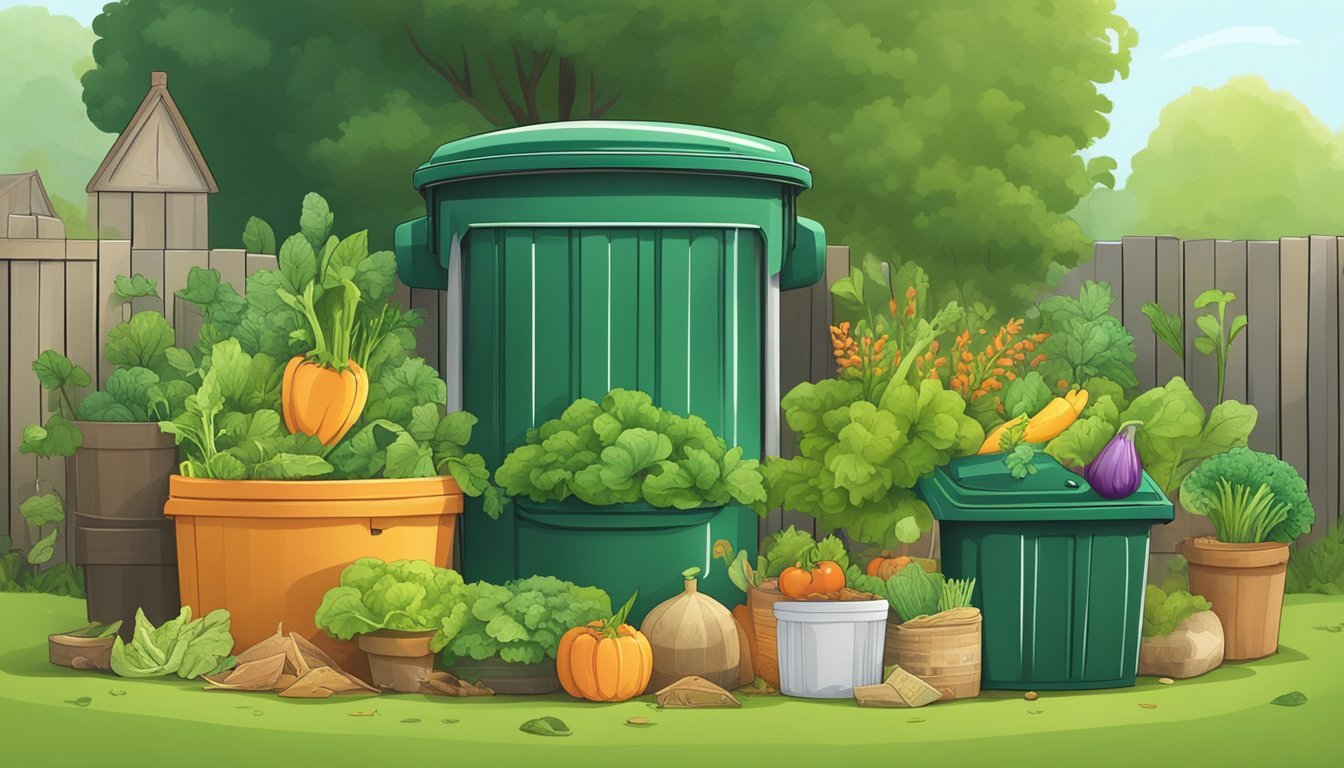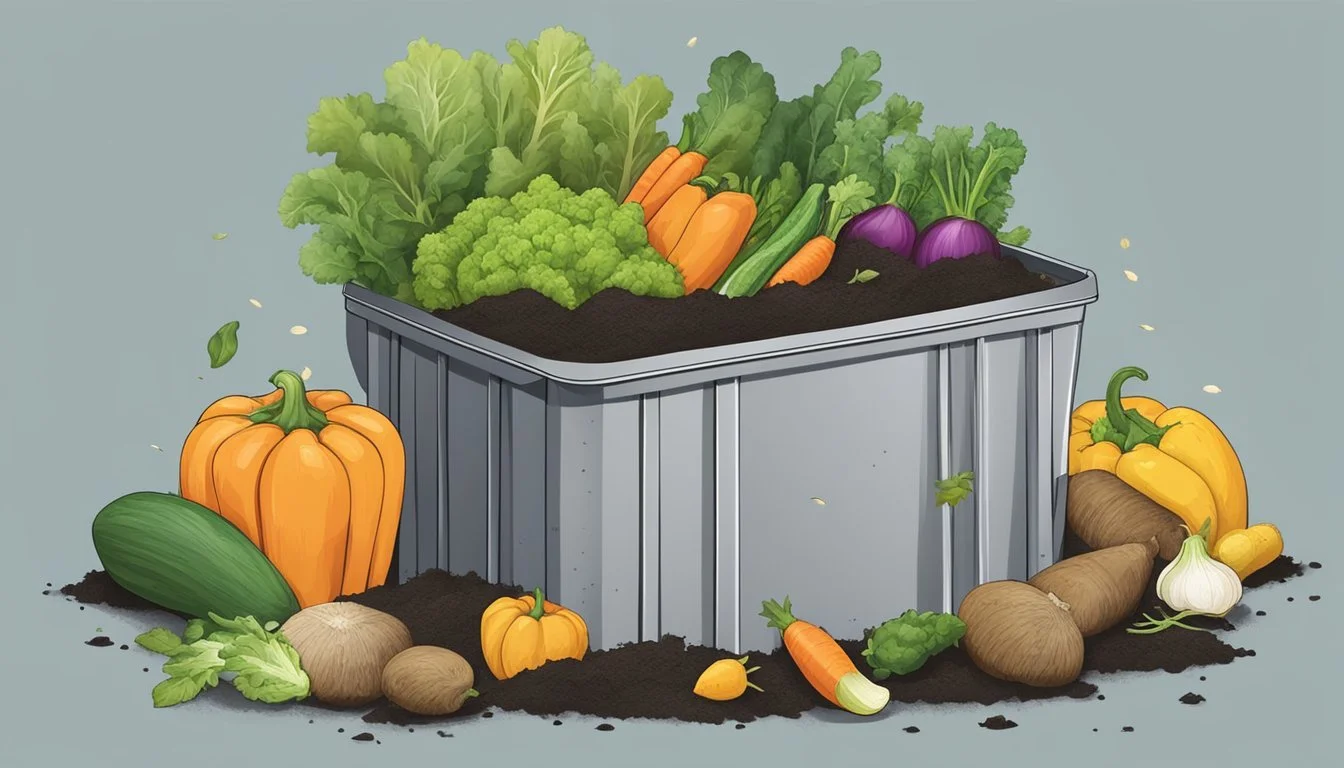Can You Compost Vegetable Stickers?
Unveiling the Truth About Their Biodegradability
Composting is an effective way to manage food waste, transforming kitchen scraps and yard debris into nutrient-rich soil amendment. It is a natural process where organic matter decomposes, creating a product known as compost, which can be used to improve soil health and structure. Compost enhances water retention, provides essential nutrients, and helps increase beneficial microbial activity, making it an invaluable resource for gardeners and farmers alike.
However, not everything biodegradable is suitable for a compost pile. Vegetable stickers, often found adhering to fruits and vegetables, may seem like minor inclusions but can disrupt the composting process. While they are small, these stickers are typically made of plastic or other non-compostable materials which do not break down naturally. Furthermore, they may contain adhesives and dyes that are inappropriate for compost intended to nourish soil.
Consequently, these stickers should be removed from produce prior to composting. Their presence in compost bins or piles can lead to contamination, as they may not decompose and could introduce unwanted chemicals into the otherwise organic material. It's a simple step, but ensuring that these stickers don't make it into the compost is crucial for producing clean, wholesome compost suitable for enriching the garden or farm.
Understanding Compostability
Compostability is a key concept in waste management, particularly when it comes to organic materials. This section will provide clarity on what makes a material compostable, how it differs from being merely biodegradable, and the critical role microorganisms play in the process.
Defining Compostable Materials
A compostable material is one that can undergo aerobic decomposition to become humus. This nutrient-rich, soil-like substance is achieved in the presence of oxygen, with the material breaking down without leaving any toxic residue. Compostable products must be able to break down within a certain time frame, typically comparable to other organic materials such as leaves and grass clippings.
Biodegradability vs. Compostability
While often used interchangeably, the terms biodegradable and compostable are not synonymous.
Biodegradable materials are simply capable of being broken down by microorganisms over time, which could span years.
Compostable items must not only biodegrade but do so at a rate fast enough to support the composting process without producing harmful byproducts.
The distinction is crucial because something that's biodegradable may not be suited for the composting process, where time frames and byproduct safety are of concern.
Role of Microorganisms in Composting
Microorganisms such as bacteria, fungi, and protozoa are the workhorses of composting. They thrive on organic materials, breaking them down into simpler substances.
Bacteria start the process, decomposing soft materials rapidly if moisture and temperature conditions are right.
Fungi and larger organisms like invertebrates take over later, dealing with tougher materials.
The presence of these microorganisms is critical to transform the organic waste into stable, usable compost; thus, a material's ability to support this biological community is a measure of its compostability.
Identifying Non-Compostable Items
In the realm of composting, recognizing what cannot be decomposed is vital to maintain the quality of the resultant compost. Certain plastics, notably produce stickers, present significant hurdles to the composting process and can have detrimental consequences on the environment.
Why Some Plastics are Non-Compostable
Plastics are typically derived from petrochemicals and are engineered for durability, which makes them resistant to the biological degradation processes that happen in composting. Most plastics are not designed to break down in the timeframe and conditions that organic matter does in a compost pile. These non-biodegradable plastics can linger for years, even in an active compost system.
Composting Challenges with Plastic Stickers
Produce stickers, although small, are a composite material made from plastic and other non-compostable adhesives. If they end up in a compost bin, they will not decompose like organic matter. These stickers can inadvertently contaminate compost bins when left on fruit and vegetable scraps.
Commonly found on: tomatoes, bananas, apples, etc.
Composition: Paper, plastic, and adhesive.
Impact: Non-biodegradable, lead to plastic contamination in compost.
Harmful Effects of Plastics in Compost
Plastic contamination in compost can lead to several problems. When compost that contains plastics is used in soil, it can lead to:
Environmental Pollution: Tiny plastic pieces may find their way into waterways and the broader environment, contributing to pollution.
Soil Health Risks: Plastics in compost can hinder plant growth and soil health.
Long-term Consequences: Plastics slowly break down into microplastics, which are difficult to manage once they enter the ecosystem and may end up in the food chain.
Plastics, particularly those that are not marked as biodegradable or compostable, pose a threat not just to the landfill, where they take up space indefinitely, but also to compost, where they impede the creation of healthy, nutrient-rich soil amendments.
Vegetable Stickers and Composting
Composting has become a standard practice for recycling organic waste into valuable fertilizer. However, the compostability of certain items, particularly vegetable stickers, often presents a question for environmentally conscious consumers.
Types of Stickers on Vegetables and Fruits
Produce stickers, also known as PLU stickers (Price Look-Up), are omnipresent in grocery stores. These small labels provide a wealth of information, from identifying the produce using a unique PLU code to indicating if the item is organic or conventionally grown. There are generally two main types of materials used for these stickers:
Paper-based stickers: Some are made from paper and are more likely to break down in compost.
Plastic-based stickers: Many stickers are manufactured from petroleum-based plastics, which do not biodegrade and can contaminate the compost with microplastics.
Regulations and Standards for Produce Stickers
The International Federation for Produce Standards (IFPS) is instrumental in standardizing PLU codes globally, ensuring that the produce can be accurately and consistently identified. Nevertheless, the IFPS does not regulate the composability of these stickers.
On the other hand, the Food and Drug Administration (FDA) regulates produce stickers to be food-safe, which means they can technically be ingested without harm. However, the FDA's regulations do not mandate that the stickers be biodegradable or compostable, leading to the crucial distinction that just because a sticker is food-safe does not imply it is suitable for composting.
Consumers looking to compost their fruit and vegetable waste should be aware that most produce stickers currently in use are neither biodegradable nor compostable and should be removed before adding the produce waste to a composting bin.
Composting at Home
Composting at home transforms kitchen and garden waste into valuable soil amendment, fostering a sustainable cycle of resources.
Starting a Home Compost Bin
A home compost bin is the starting point for recycling organic matter into nutrient-rich compost. Essentials for beginning include a container—either an open pile or a compost bin—and a mix of green and brown materials.
Balancing Carbon and Nitrogen in Compost
For effective composting, a balance between carbon-rich materials (browns) and nitrogen-rich materials (greens) is crucial. Browns include dry leaves, paper, and straw, providing the carbon, while greens are materials like kitchen scraps, coffee grounds, and grass clippings, supplying the nitrogen.
What Can and Can't Go in Your Compost Bin
It's imperative to know what is suitable for the compost bin to ensure a successful decomposition process. Suitable items include fruits and vegetables, coffee grounds, tea bags (if they are not made with synthetic fibers), and untreated paper products such as coffee filters. However, items like meat, dairy, treated woods, and yes, vegetable stickers, should not be included as they don't break down well and can introduce contaminants.
Compostable Alternatives
As the push for sustainability grows, compostable alternatives for traditional produce stickers become increasingly valuable. These alternatives include eco-friendly packaging labels and plant-based compostable stickers that aim to reduce non-biodegradable waste.
Eco-Friendly Packaging Labels
Eco-friendly packaging labels are designed to replace traditional stickers on produce. They are often made from materials like paper that has been sourced from sustainable forests or contains recycled content. These labels are typically printed with soy-based or water-based inks, which have a lower environmental impact than petroleum-based inks. Not only do eco-friendly labels decompose more readily in a composting system, but they also:
Use materials certified by environmental standards, such as the Forest Stewardship Council (FSC).
Avoid using adhesives that might contaminate compost with harmful chemicals.
Plant-Based Compostable Stickers
Plant-based compostable stickers represent a leap forward in addressing the issue of waste in compost bins. These stickers:
Are made from bioplastic materials derived from plants, which break down into carbon dioxide, water, and biomass without leaving behind toxic residue.
Are designed to decompose under commercial composting conditions within a specific time frame, typically 90 to 180 days.
Feature Benefit Plant-based Reduces reliance on fossil fuels Compostable Simplifies disposal and supports composting efforts Biodegradable Ensures complete breakdown in the environment
The development and adoption of these stickers by produce suppliers can significantly diminish the presence of plastic in compost heaps, aiding in the creation of healthier, more productive soil.
Impact on Garden and Soil Health
Incorporating compost into garden soil is a transformative practice. It enhances the soil's fertility and structure while providing essential nutrients. This section underscores how compost benefits soil health and its application as fertilizer.
Benefits of Compost for Soil Fertility
Compost, derived from decomposed organic waste, serves as a vital component in creating rich humus that boosts soil health in gardens. When gardeners add compost to their soil, they contribute a significant amount of organic matter, which is critical for retaining moisture and improving soil structure. This organic matter feeds soil microbes, which in turn creates a more fertile soil. Vegetables and fruits, when composted, contribute to this process by breaking down into nutrients that are essential for plant growth, such as nitrogen, phosphorus, and potassium.
Using Composted Materials as Fertilizer
Utilizing compost as a fertilizer offers a slow-release form of nutrients, which plants can absorb over time. This is particularly beneficial for maintaining long-term soil fertility. The application of compost also helps to buffer the soil, neutralizing both acidic and alkaline soils to bring pH levels to an optimum range for nutrient availability to plants. As a natural fertilizer, compost negates the need for chemical alternatives, thereby supporting a healthier and more ecologically balanced garden.
Environmental Considerations
Proper disposal of vegetable stickers has implications for landfill usage and greenhouse gas emissions. This section examines the environmental impact of composting these small items.
Reducing Landfill Waste
When vegetable stickers are not composted, they contribute to landfill waste. Landfills are finite spaces where waste accumulates, potentially leading to environmental degradation. Vegetable stickers are small, but in large numbers, they can add to the volume of non-biodegradable material in landfills. Considering that these stickers are typically made from a type of plastic, they do not break down naturally, resulting in long-term accumulation. Removing stickers from vegetables prior to composting helps ensure that the maximum amount of organic waste is recycled back into the ecosystem without additional waste.
Mitigating Methane Emissions from Organic Waste
Organic waste, such as food scraps and yard waste, releases methane when it decomposes anaerobically (without oxygen) in landfills. Methane is a potent greenhouse gas that contributes to climate change. Composting is an aerobic process that significantly reduces methane emissions from organic waste decomposition. By ensuring that vegetable stickers, which cannot be composted, are excluded from the organic waste stream, composters can produce a more environmentally friendly product and help mitigate the harmful effects of methane emissions.
Consumer Practices and Market Trends
Within the grocery marketplace, consumer habits and burgeoning trends play critical roles in shaping packaging and labeling strategies, particularly for eco-friendly alternatives. These factors are poignant in the context of compostable materials, extending to the tiny yet significant aspect of produce stickers.
Shopping Habits and Compost Awareness
Consumers are increasingly aware of composting's benefits, reflecting an uptrend in the search for items with environmentally conscious packaging at the point of sale. They scrutinize produce not only for quality and price but also for the sustainability of its labels and stickers. This enhanced awareness has compelled grocery stores to consider the compostability of their produce stickers as a selling point to eco-friendly shoppers.
Grocery Stores: Witness a heightened consumer demand for eco-conscious products.
Packaging: Faces a push toward materials that do not contaminate compost.
Consumer: Elects products that align with their environmental values.
Trends in Biodegradable and Organic Labels
The market has seen a gradual shift towards biodegradable alternatives for item labeling, including produce stickers. This response is directly tied to consumers preferring products that contribute to a reduce-reuse-recycle lifestyle. Organic labels, once a niche market aspect, are now often seen as a necessity with greater demand noted in the industry reports. The evolution reflects market dynamics that prioritize sustainability.
Biodegradable Stickers:
Gradual increase in availability.
Seen as a value-add for eco-conscious consumers.
Organic Labels:
Growth in consumer demand.
Market's response to a preference for organic and eco-friendly shopping.
Conclusion
Vegetable stickers should not be added to compost piles. These small pieces of plastic, despite their seemingly innocuous size, disrupt the composting process and may lead to contamination of the soil and garden.
Produce Stickers: Generally, they are made of a type of plastic or have a plastic-like coating, which does not break down in a home compost system.
Contamination: If these stickers find their way into compost, they can remain in the finished compost and may end up being spread in gardens, introducing microplastics into the soil.
Decomposition Time: The decomposition time for such materials can be extensive, often spanning multiple years, during which they remain intact and pose an environmental threat.
Best Practices:
Remove stickers: It is important for individuals to remove vegetable stickers prior to composting produce scraps.
Trash disposal: The current recommendation is to dispose of these stickers in the trash to prevent potential contamination.
Environmental Impact: Minimizing the use of materials that cannot be composted helps reduce landfill waste and supports a healthier ecosystem.
In the interest of maintaining a high-quality compost and contributing positively to environmental health, individuals are advised to be vigilant in removing vegetable stickers from produce waste before composting. Conscious actions like these aid in producing nutrient-rich compost that is beneficial for the garden without adding pollutants to the soil.

